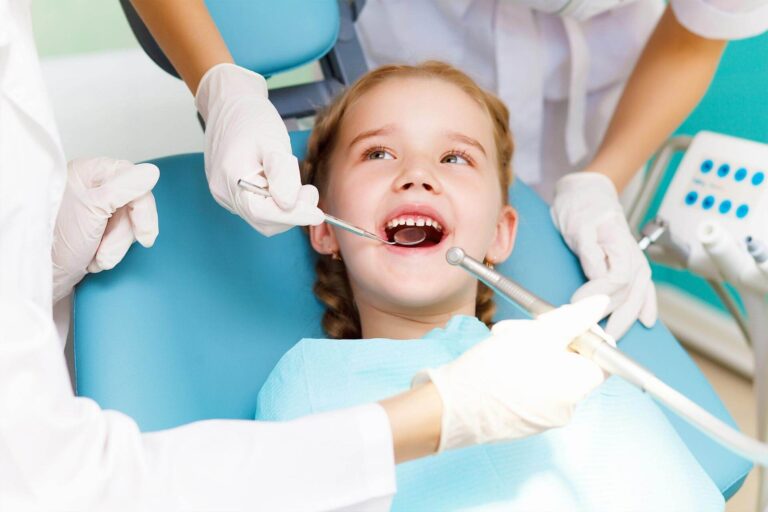
Taking care of your child’s oral health is crucial for their overall well-being. Even before they get their first tooth, it’s essential to establish good oral hygiene habits. Here are some key points to consider:
Early Dental Visits: At first, take your child to an oral health professional by age 1 or within 6 months of their first tooth coming in. In fact, regular dental check-ups help monitor their oral health and address any concerns early on.
Fluoride Varnish: Consider applying fluoride varnish to your child’s teeth. Indeed, fluoride varnish is a tinted liquid resin containing fluoride that helps prevent tooth decay. It’s applied to all visible enamel surfaces of the teeth.
Sealants: Once your child’s permanent teeth (adult teeth) start appearing, discuss having sealants applied. Sealants act as a barrier, keeping food from getting stuck in the grooves and pits of teeth, thus preventing cavities.
Avoid Sugary Drinks: Limit sugary drinks like juice and soda. In reality, the sugars in these drinks combine with bacteria in plaque, creating acid that damages tooth enamel. Encourage plain water instead1.
Brushing and Flossing: Teach your child to brush their teeth twice a day for at least 2 minutes using fluoridated toothpaste. Additionally, Flossing daily is important for maintaining oral health
Find furthermore information here on the Canadian Dental Association website

How to prepare your child for a first dental visit.
Preparing your child for their first dental visit can help them feel more comfortable and confident at the dentist. Here are some tips to make the experience positive and enjoyable for both of you:
- Start early. The Canadian Dental Association recommends the assessment of infants, by a dentist, within 6 months of the eruption of the first tooth or by one year of age. This way, your child can get used to the dental environment and prevent any potential problems.
- Talk to your child about what to expect. Explain to your child that the dentist will check their teeth and make sure they are healthy and strong. Also, You can read books or watch videos about first dental visits with your child. Avoid using any scary words like “pain”, “drill”, or “needle”.
- Practice at home. Have your child practice opening their mouth and letting you look at their teeth. You can use a small spoon to mimic the mouth mirror that the dentist will use. In addition, you may brush and floss your child’s teeth regularly and make it a fun and rewarding activity.
- Be positive and supportive. On the day of the visit, stay calm and cheerful. Praise your child for their cooperation and bravery. Do not show any anxiety or frustration if your child is nervous or fussy. Follow the dentist’s instructions and suggestions on how to comfort your child.
- Make it a habit. Schedule regular dental exams for your child every six months or as recommended by the dentist. This will help your child maintain good oral health and prevent any future problems. It will also make your child more familiar and comfortable with the dental visits.
I hope these tips help you and your child have a great first dental visit.
